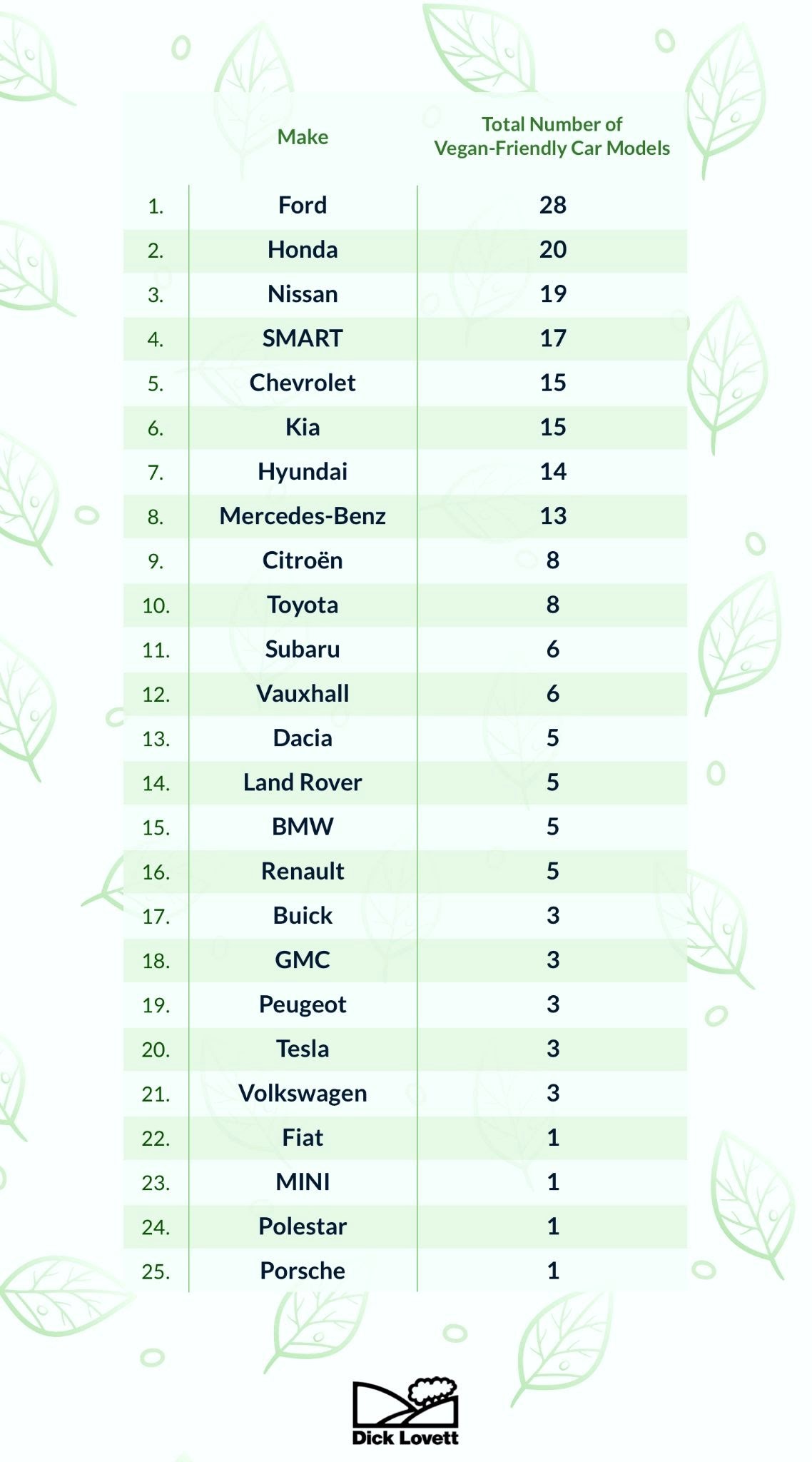More and more car brands are adopting veganism as a more sustainable approach to interior design.
A recent study reveals which automakers are currently offering the most vegan-friendly models, using resources from PETA.

Now, it's important to note that the “total number of vegan-friendly car models” listed in the study most likely refers to available trim levels, and it doesn't disclose which markets it's including. So, take the study with a grain of salt. But it is interesting nonetheless.
Ford takes out the number one spot for the most vegan friendly car brand, offering 28 trim levels on its models, including it's flagship Mustang Mach-E, which comes standard with a fully vegan interior.
Honda is next on the list, with 20 trim levels, including the base spec CR-V and the new HR-V. Nissan comes in third with 19 trims, which could be due to the fact it doesn't offer standard leather steering wheels in entry-level variants of some of its popular models like the Juke or Qashqai in Europe.
Interestingly, Mercedes ranked relatively low in the list, with only 13 vegan trim levels. This is surprising, as Mercedes is known for offering sustainable options like the Artico man-made leather or the Dinamica man-made suede. So, this number really seems too small. And it's the same story with BMW, who is listed to only offer 5 vegan trims, while the automaker has several options that focus on sustainability, such as the BMW i range.
Mini, which is listed to only offer one vegan trim, is about to go leather free for its entire range. And the same goes for Volvo, who isn't even listed in the study, who is set to go completely leather free in all electric models, starting with the C40 Recharge. Fiat is also only listed to offer one vegan trim, but offers a vegan material called Seaqual for both the Panda and the 500.

It's safe to say there are some flaws in the study, but it does somewhat reflect the current state of the market. Give it a few years, and there'll surely be many more vegan options to choose from, combined with sustainable use of recycled materials for the rest of the cabin.
And while we are headed in the right direction, Vegan Society spokesperson Dominika Piasecka says there’s no such thing as a 100 percent vegan car: “The key with veganism is trying to do your best. It’s not possible to be 100% vegan in this imperfect world but we can avoid animal suffering as much as possible. Avoiding leather is a practical thing we can do while buying a car, while we can’t of course avoid tires or steel.”







